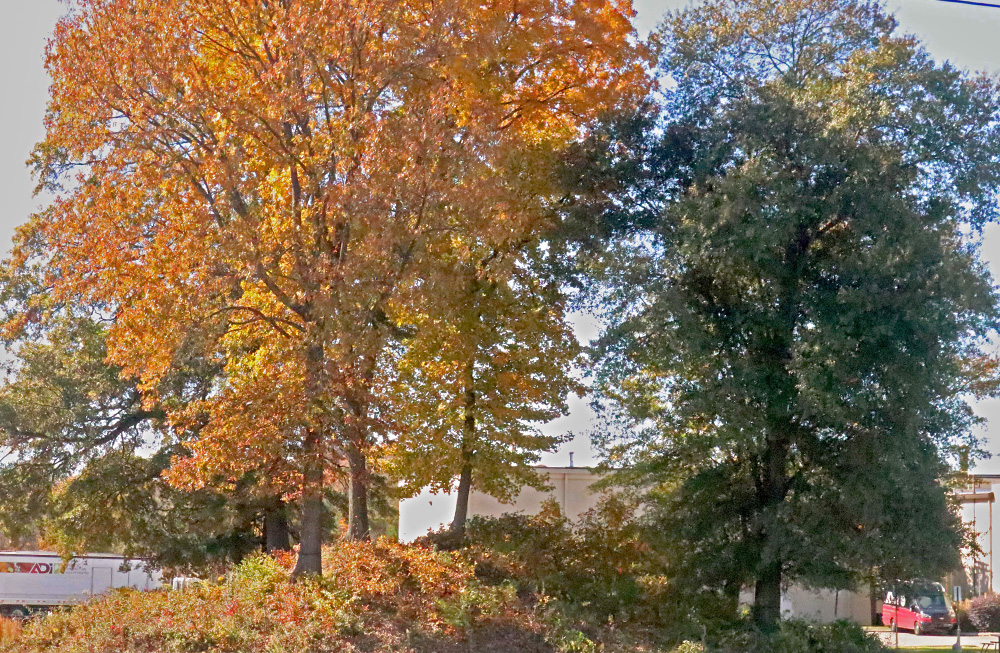By Virginia Campbell

What was once a thriving advocacy group for Native American preservation work in Chattanooga has slowly fizzled over time, but it’s cause still stands. The Chattanooga Intertribal Association (CITA) has existed for twenty years, and Tom Kunesh, the former Public Relations Chairman, tries to maintain the spirit of their work to this day.
CITA was an official nonprofit that formed in 1993, and their first project was Moccasin Bend, then jointly owned by the City of Chattanooga and Hamilton County until the National Park Service took it over in 2003. Before CITA got to work on the project, the bend was heavily violated and looted. Graves were wrongfully dug up and artifacts were stolen constantly.
Kunesh says he and other members were concerned about the grave robbings.
“We’d heard all sorts of stories of what they took out… like a complete skeleton of a mother and child that somebody has in their basement [now], with lights out.”
Kunesh says the Moccasin Bend is believed to have been inhabited by the Muscogee and Yuchi tribes, not as much by the Cherokee as many people thought. In fact, he says most of Chattanooga and Tennessee was inhabited by Muscogee and Yuchi long before the Cherokee settled, then uprooted.
According to Kunesh, before CITA could do anything to stop the robberies, they had to stop development plans for a Civil War reenactment amphitheater. “It was our winning that case against the city and county getting development money to put out there, that turned the whole table against anything the city and county wanted to do out there.”
They started by forming a security team to show a presence at the bend and scare off any potential looters. Then, in 1994, the Hamilton County Sheriff’s Department partnered with CITA to create the Native American Reserve Force (NARF), an official branch of the Sheriff’s department designated to patrol Moccasin Bend, although the brand dissolved when the National Parks Service took over the bend.

Another big win for CITA, according to Kunesh, was protecting Little Cedar Mountain from development. At least, most of the land was protected. The land was up for auction in 2006 by the Tennessee Valley Authority (TVA) when CITA attempted to sway them in order to keep the land as it was rich with the shadow of Cherokee culture, especially that of Dragging Canoe, a feared leader of a band of Cherokees who fought hard against the encroachment of white settlers in the southeast.
“[Dragging Canoe] was an inspiration for us to protect Moccasin Bend, and then Little Cedar Mountain,” says Kunesh.
TVA ultimately sold off most of the property around the mountain, although the mountain itself still remains untouched with some public access trails available.
“It was a long fight with TVA,” says Kunesh. “We lost, and we won, and we lost. We lost because [TVA] ultimately sided with the developer, and they sold the land…Then they realized what they had done and the wrongness of it. And they told us, ‘we shouldn’t have done that, we should’ve kept Little Cedar Mountain as it was.’”
By the time transactions were made over Little Cedar, CITA had begun to collapse on itself. Kunesh says many members came forward having discovered they were not Native American, and CITA’s President, John Anderson, had fallen ill and died just a few years later.
During CITA’s final years, Kunesh and some other members informally took on the project of preserving the Chickamauga Mound, which is located and owned by Atlantic Distributors Inc. “That’s the only visible mound now, the only remains of native culture,” says Kunesh.

The Mound is now fenced off, and Kunesh has been given access to clean and care for the mound. He visits once a month, driving down from Nashville, where he’s now located, and makes a small offering to the Mound by spreading tobacco around it. “All I’m here for is to keep it alive so that my kids can see something so that other people can see that this land was indegenous people,” he says, then adds that his biggest fears, along with the trees in the mound falling over, is that once he’s gone no one will come care for the Mound.
There is some hope for activism to reignite in the city, and Kunesh says that’s only possible if enough real Native Americans can formally gather together. He says “It takes a different kind of person, takes more educated people, coming here and saying ‘this is ours, and we gotta start to care for it, take it back in some ways.’”
More information on the Chattanooga Intertribal Association can be found on their website moccasinbend.net/cita, or on their Facebook page, which Kunesh still keeps active.

Virginia Campbell is a graduating senior with a communications degree at UT Chattanooga. She is a writer and storyteller, with a background in live audio that’s taught her how to adapt quickly and work under pressure. She aspires to work in feature journalism. If you have a story that needs to be heard, please email her at ginia.campbell7@gmail.com.
